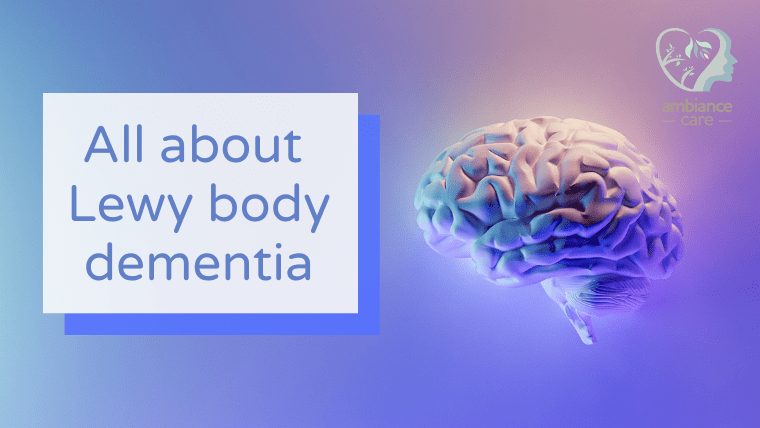What is dementia with Lewy bodies?
Dementia is an umbrella term that applies to impaired memory or problems with thinking and day to day decision-making. Dementia with Lewy bodies is one of the conditions that falls under the broad term, and it’s among the most common.
The disease came under the spotlight in recent years when much-loved comedian and celebrated actor Robin Williams passed away. It was discovered after his death that Robin had experienced symptoms of Lewy body dementia and ever since his death, his wife has been raising awareness of the condition, which she describes as “the most common disease you have never heard of”.
In 2020, the film Robin’s Wish was released, telling the moving story of the actor’s later days and his experiences with Lewy body dementia. It draws attention to the need for an early diagnosis to help the individual understand and adapt to their symptoms and situation.
Our November blog post lays out the facts on Lewy body dementia and echoes the sentiment of Robin’s Wish: if you or someone you love is experiencing symptoms of dementia, the best thing you can do is to see a doctor – please don’t wait.
What causes dementia with Lewy bodies?
Dementia with Lewy bodies is caused by a buildup of protein called Lewy bodies in the brain. These abnormal deposits form in areas of the brain that regulate thinking, visual perception, alertness, sleep and movement, progressively damaging cells.
It’s not known exactly how Lewy bodies cause damage to the brain but they may interfere with signals transmitted between brain cells, affecting normal functioning.
What are the symptoms of dementia with Lewy bodies?
Someone with Lewy bodies dementia may experience symptoms like:
- Problems with thinking, remembering or understanding
- Sensory hallucinations that might include seeing, hearing or smelling things that aren’t there
- Slow movement, stiffness or tremors
- Sleep problems
- Fluctuating alertness and attention
- Sudden sleepiness or confusion
- Balance problems and falls
How is Parkinson’s connected to Lewy body dementia?
Lewy body dementia can be divided into two types: dementia with Lewy bodies and Parkinson’s disease. Both diseases may progress in similar ways; the key difference between the two is which of the symptoms occur first.
In cases of dementia with Lewy bodies, an individual may first display cognitive symptoms or problems with sleep and later show signs associated with Parkinson’s, like difficulty with movement.
In Parkinson’s disease dementia, difficulties with movement are experienced first, followed by changes in thinking and perception.
Not everyone who has Parkinson’s will develop dementia, but the risk is higher.
How common is Lewy bodies dementia?
Accounting for an estimated 10 to 15% of dementia diagnoses, Lewy bodies dementia is the second most common type of progressive dementia after Alzheimer’s disease.
Because dementia with Lewy bodies shares symptoms with Alzheimer’s and Parkinson’s disease, it’s often wrongly diagnosed.
What’s the prognosis for dementia with Lewy bodies?
Lewy body dementia is progressive, which means it can affect people at different rates. Memory is often less affected than other areas of functioning, like mood and behaviour.
Some of the medications used to treat Alzheimer’s may also be offered to individuals with Lewy body dementia – which can help with symptoms like hallucinations and reduced concentration – along with medications used to treat Parkinson’s.
Other interventions for Lewy body dementia include occupational therapy, physiotherapy, counselling and activities to stimulate cognition.
While some individuals with Lewy body dementia may move into nursing care, others will continue to live independently with support for a number of years. Our team supports people living with Lewy body dementia to enjoy life at home and in the community for longer.
For more information following a diagnosis of Lewy body dementia, Ambiance Advice can answer all of your questions – call us today on 0161 537 0983 or email us at enquiries@ambiancecare.co.uk and we’ll get straight back to you.



1 Comment
Comments are closed.